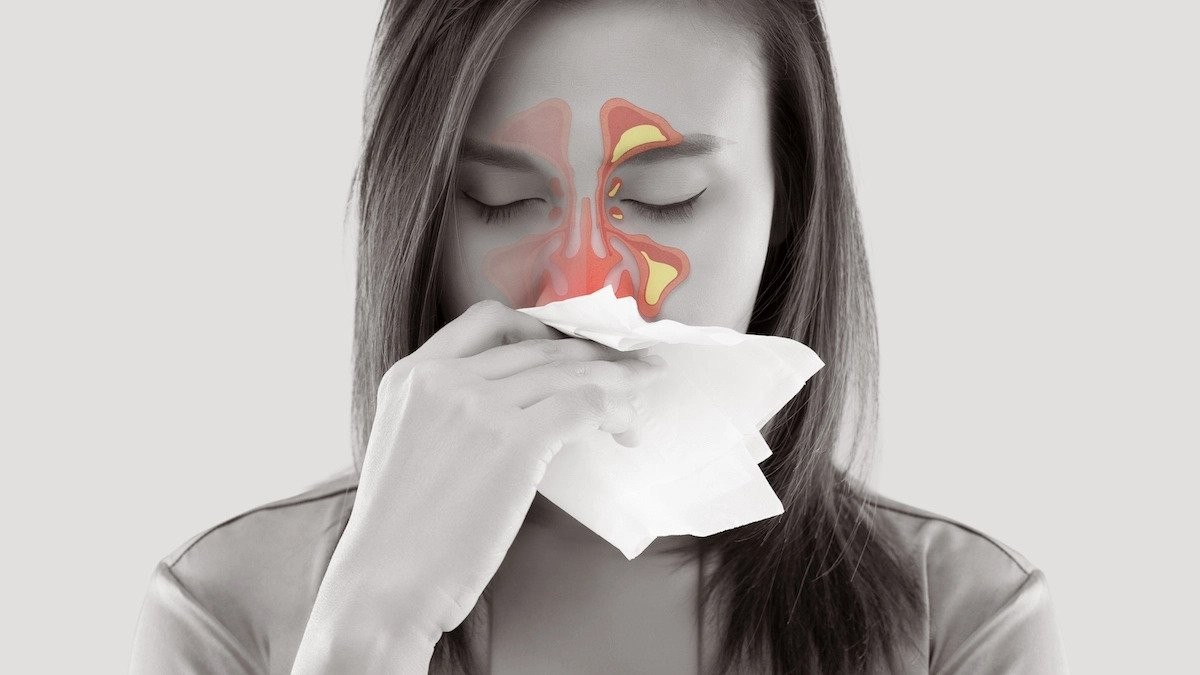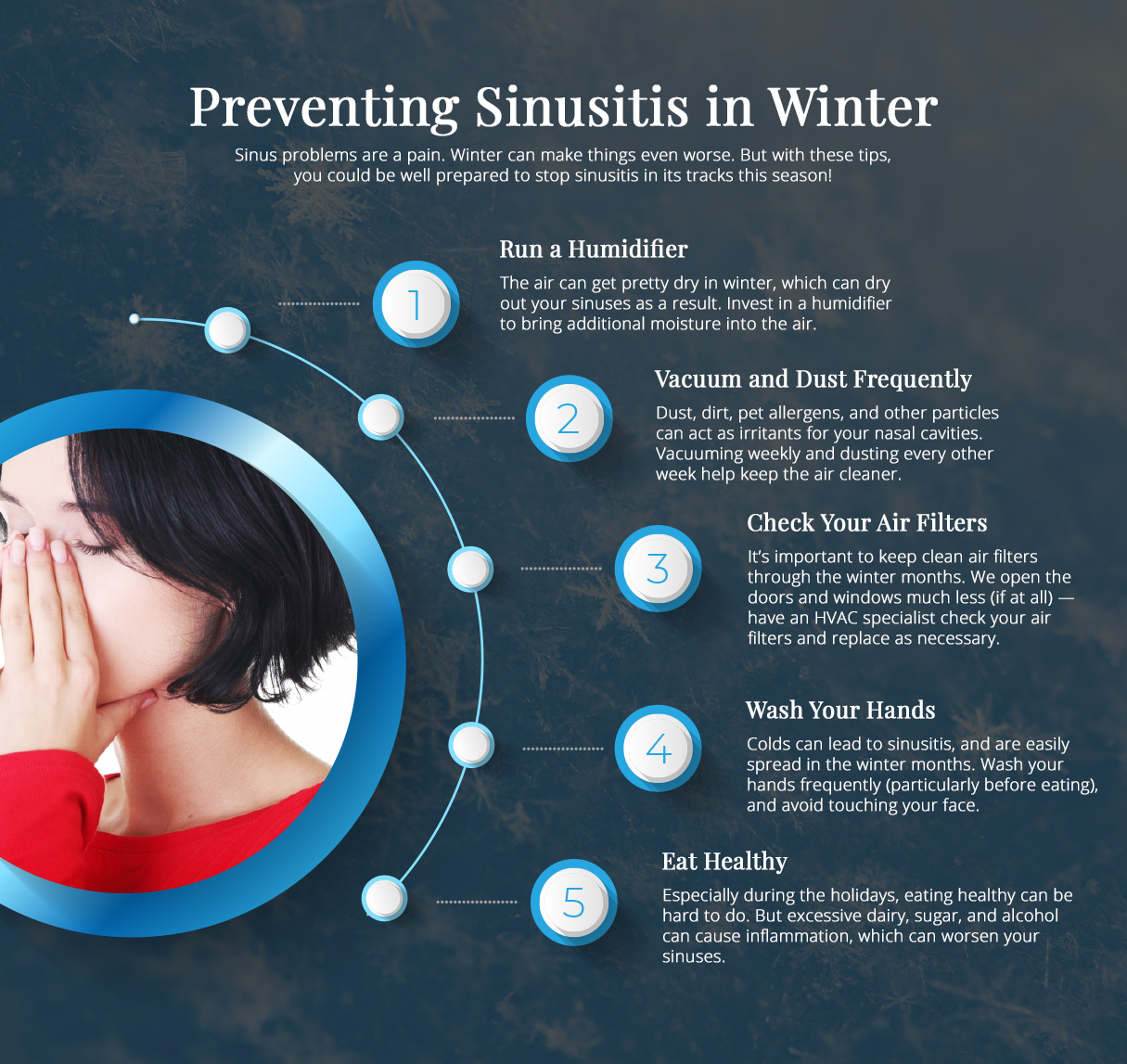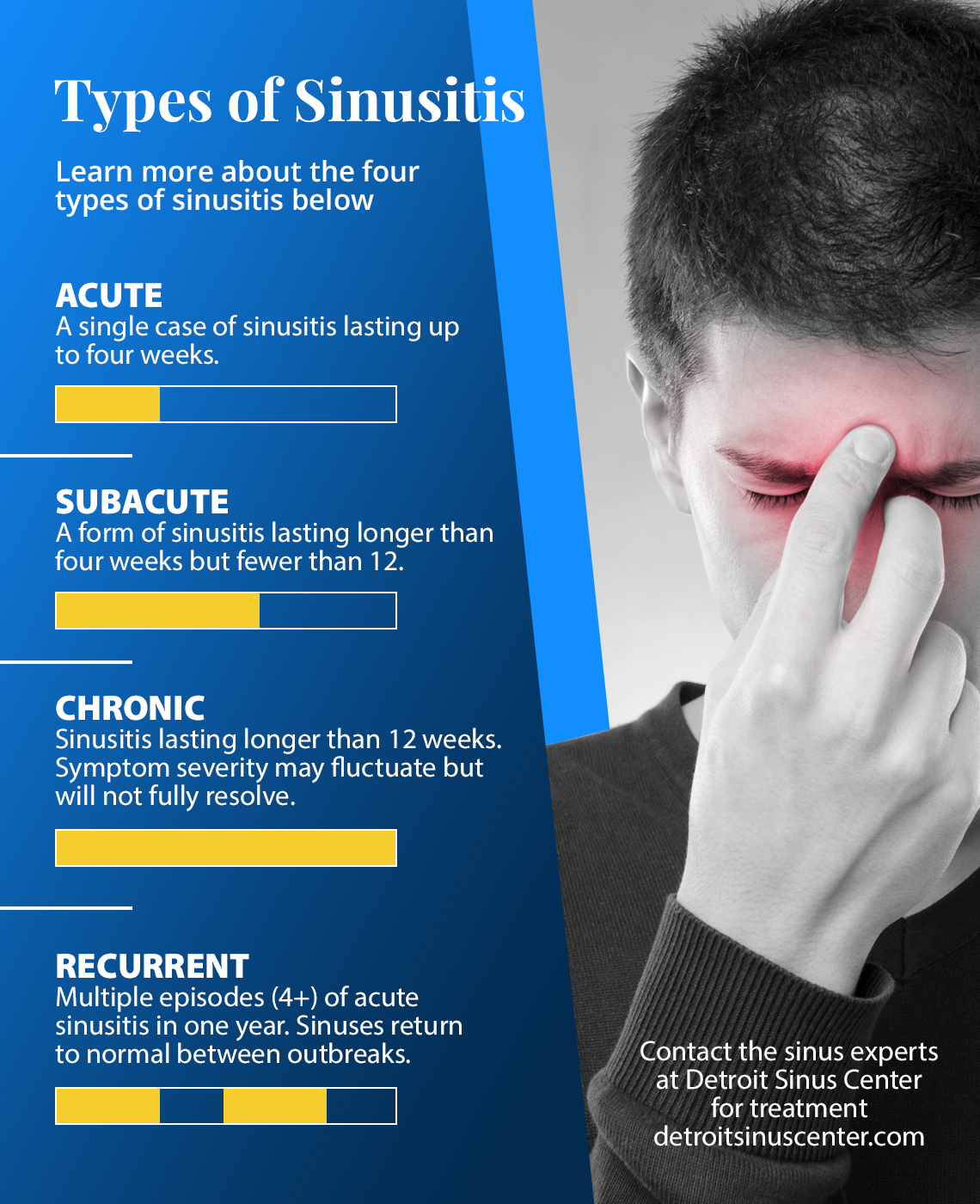Are sinus infections contagious ? -various aspects-
Sinusitis itself is not transmissible. Nevertheless, the root causes of sinusitis may be transmissible. Viral infections, like the common cold, are a frequent cause of acute sinusitis. In this situation, the virus may spread via respiratory droplets when a person who is infected coughs, sneezes, or speaks.


Sinusitis (sinus infection) is a widespread condition that impacts millions globally. The main origin of most sinus infections is viral or bacterial. However, allergies and structural irregularities are also frequent sources of many sinus infections.
Measures to be taken to prevent spread of Sinus infections-
Maintain a space of at least one meter from others when you are outside.
Infected hands can convey the virus to your eyes, nose, or mouth.
Use a handkerchief or tissue to cover your mouth and nose when you cough or sneeze. Immediately throw away the used tissue in a closed bin.
Keep a sanitiser with you / wash your hands often with soap and water. Steer clear of close interactions with anyone who is ill or shows symptoms.
How long are sinus infections contagious ?
If you are dealing with a viral sinus infection, you cannot pass the infection on to others, but you can transmit the virus.
Someone who catches the virus from you is then at a higher risk of also getting a sinus infection. You may be contagious for as long as two weeks. Sinus infections can also be caused by bacteria.
How Contagious Are Sinus Infections?
The short answer is not at all. Yet, this does not mean that the original source of the infection is harmless. Each year, more than 31 million Americans experience a sinus infection. A considerable number develop the infection after getting a virus from another individual.
Why Do Sinus Infections Occur?
Your sinuses are hollow spaces found within your cheeks, forehead, and between your eyes. The linings of these cavities can become swollen, causing mucus to accumulate.


Many individuals get a sinus infection after catching a cold, specifically the rhinovirus. Symptoms associated with a common cold like a runny nose and congestion can lead to swelling and impair the normal drainage of the sinuses.
If you are dealing with a viral sinus infection, you cannot pass the infection on to others, but you can transmit the virus. A person who contracts the virus from you is then at a higher risk of also getting a sinus infection. You may be contagious for up to two weeks.
Sinus infections can also result from bacteria. When mucus builds up, it provides a suitable environment for bacteria to thrive.
Allergies, nasal polyps, and any elements that cause a structural blockage in the sinus cavity can provoke an infection, as the narrowed passageway complicates the proper drainage of mucus. None of these factors are contagious.
Sinus Infection Symptoms and Treatment
The most common symptoms of a sinus infection consist of:
- Headache
- Fatigue
- Post-nasal drip
- Cheek and jaw soreness
- Pressure under the eyes
- Coughing
- Fever
- Loss of smell
- Bad breath
A viral sinus infection typically resolves itself within seven to ten days. Over-the-counter medications and home remedies can be used to relieve symptoms. These consist of:
- Nasal spray
- Mucolytics
- Anti-inflammatory pain relievers
- Antihistamines
- Warm compress
- Sinus rinse
- Humidifier
If your symptoms continue for more than ten days, it is probable that you have a bacterial infection. Bacterial sinus infections are treated with a complete course of antibiotics.
Prevent Sinus Infections
The best way to protect yourself from getting a sinus infection is to reduce your risk of catching a virus by maintaining good hand hygiene and avoiding contact with those who are sick


Are bacterial sinus infections contagious while on antibiotics-
Yes they are contagious but the duration till when hey will be contagious depends on several factors-
Type of infection: If the sinus infection stems from bacteria, you may be contagious until the antibiotics eradicate the bacteria. If the infection is viral, you might still be contagious until the virus resolves.
Severity of infection: The intensity of your infection can influence the duration of your contagiousness.
Immune system: The response of your immune system to the infection can impact how long you remain contagious.
Symptoms: You might be contagious for several days before or after your symptoms manifest.
Here are some tips for minimizing the transmission of a sinus infection:
Take antibiotics-
Persist in taking antibiotics even if you begin to feel better to ensure the infection is fully cleared.
Stay home
If you are employed or attend school, adhere to your employer’s or school’s recommendations regarding staying home when ill.
Limit contact
Reduce contact with others during the most intense phase of your illness.
Clean surfaces
Disinfect surfaces such as doorknobs, light switches, or public transit handholds if you have touched your mouth, eyes, or nose.
This kind of infection may exhibit various symptoms, –
making it challenging to distinguish between sinusitis and the common cold.
In this article, we will investigate the characteristics of sinusitis, how it spreads, and the indicators and symptoms that may assist you in recognizing it.
Sinusitis is an inflammation of the sinuses triggered by a viral or bacterial infection, allergies, or irritants such as air pollution Sinusitis can induce pressure and discomfort in the face, congestion, runny nose, coughing, toothache or jaw pain, fever, and headaches.
What You Need to Know About Sinusitis-
inflammation of the sinus tissues, often resulting from viral or bacterial infections, allergies, or structural complications.
Nature of Sinusitis:
Sinusitis is an Contagiousnes: Sinusitis itself is not contagious, but the underlying viral or bacterial infections leading to it can be. Symptoms: –
Typical symptoms include facial pain, congestion, runny nose, postnasal drip, coughing, toothache, and fever.
Treatment: –
Treatments differ based on the cause and may involve decongestants, antihistamines, saline sprays, antibiotics, or surgery for chronic cases.
Prevention: Maintaining good hygiene, avoiding close interactions with sick individuals, and upholding a healthy lifestyle can assist in preventing the transmission of germs and lessen the risk of sinusitis.
What is Sinusitis?
Causes of Sinus Infections –
Sinus infections arise when the tissue lining the sinuses becomes inflamed or swollen, with several factors contributing to this condition.
Viral infections are the most common cause, typically following a cold. If a viral infection continues or intensifies, it can result in a bacterial infection.
Fungal infections, though rare, can occur in individuals with weakened immune systems.
Allergies can also provoke inflammation and blockage of the sinuses, resulting in sinusitis.
Structural complications such as nasal polyps or a deviated septum can obstruct airflow and drainage, leading to sinus infections.
Environmental irritants, including pollutants, smoke, and chemicals, may also aid in sinus inflammation.
Furthermore, recurrent upper respiratory infections can contribute to chronic sinusitis.
Types of Sinus Infections


Sinus infections can be categorized based on their duration and underlying cause.
Recognizing the various types aids in determining the suitable treatment:
Acute Sinusitis:
- Duration: Lasts up to 4 weeks.
- Causes: Usually caused by a viral infection.
- Symptoms:
Rapid onset of symptoms that improve within a few weeks.
Subacute Sinusitis:
- Duration: Lasts between 4 to 12 weeks.
- Causes: This can result from an unresolved acute infection or allergies.
- Symptoms: Symptoms persist longer than acute sinusitis but ultimately resolve.
Chronic Sinusitis:
- Duration: Lasts 12 weeks or longer, even with treatment.
- Causes: Frequently due to prolonged inflammation, allergies, nasal polyps, or fungal infections.
- Symptoms: Ongoing symptoms that may vary in severity.
Recurrent Sinusitis:
- Duration: Multiple occurrences of acute sinusitis within a year.
- Causes: Frequent infections or underlying issues that make one susceptible to sinusitis.
- Symptoms: Episodes of acute symptoms with intervals of no symptoms occurring between episodes.
Is Sinusitis Contagious?
Sinusitis by itself is not contagious. However, the underlying causes of sinusitis may be contagious. Viral infections, such as the common cold, are a prevalent cause of acute sinusitis.
In such instances, the virus can be transmitted through respiratory droplets when an infected individual coughs, sneezes, or talks.
Bacteria, such as Streptococcus pneumoniae, can also lead to sinusitis and may be spread through close contact with infected persons or contaminated items.
However, if sinusitis is caused by allergies or nasal polyps, it is not contagious.
While sinusitis itself may not consistently be contagious, the symptoms can still resemble those of a contagious respiratory infection. Therefore, practicing good hygiene and taking measures to prevent the spread of germs is advisable, regardless of the underlying cause.
Signs and Symptoms of Sinusitis
Identifying the signs and symptoms of sinusitis can assist you in determining whether you are experiencing a sinus infection or a common cold. Some of the most typical symptoms of sinusitis include:
Pressure and Pain in the Face
Swelling of the sinus tissues can lead to facial pain or pressure, especially around the eyes, nose, and forehead. The discomfort can range from mild to severe enough to disrupt daily activities. Additionally, sinus pressure may intensify when bending over or lying down.
Congestion and Runny Nose
Sinus inflammation can result in nasal congestion, making it challenging to breathe through your nose. You may also have a runny nose that features thick, discolored mucus.
Postnasal Drip
Excess mucus produced by the sinuses may drip down the back of your throat, leading to a sensation referred to as postnasal drip. This can result in a lingering cough, sore throat, and a frequent need to clear your throat.
Coughing
Sinusitis may trigger a cough, which could worsen at night or when lying down due to postnasal drip.
Beyond postnasal drip, the swelling in the sinuses can irritate the airways, prompting coughing as the body works to clear the airways.
Toothache or Jaw Pain


Sinusitis can occasionally cause tooth pain or jaw discomfort due to the close proximity of the sinus cavities to the teeth and jaw. Sinus congestion can create inflammation and pressure that irritate the nerves in that region, resulting in pain in the jaw or teeth.
Fever and Headaches
Sinusitis can also result in fever and headaches, particularly in cases of severe infection. A fever is the body’s natural reaction to an infection, and headaches may arise from the inflammation and pressure within the sinus cavities.
If you are experiencing fever and headaches alongside other sinusitis symptoms, it’s important to consult ENT specialist doctor to assess the most appropriate treatment options.
If you are suffering from sinusitis and need to consult ENT specialist doctor pl click on the link given below-
www.entspecialistinnashik.com
If Sinusitis is not treated well in time it leads to complications -for details of which pl click on the link given below-It is always better to view links from laptop/desktop rather than mobile phone as they may not be seen from mobile phone. ,in case of technical difficulties you need to copy paste this link in google search .
Sinusitis is first treated conservatively only ,but if it becomes chronic and not responding to medical line of management then it requires Functional endoscopic sinus surgery-FESS-for details of FESS-pl click on the link given below-It is always better to view links from laptop/desktop rather than mobile phone as they may not be seen from mobile phone. ,in case of technical difficulties you need to copy paste this link in google search .
How Long Does a Sinus Infection Last? -in case you do not take antibiotics or visit a ENT specialist doctor ?
Viral infections generally persist for about 7 to 10 days, and in certain situations, they may extend up to three weeks. Nevertheless, if symptoms endure for more than two weeks, it is crucial to obtain medical assistance as this might signify a more serious infection that necessitates additional treatment.
Bacterial infections can continue for 10-14 days, though the infection sometimes may last for weeks or even months. It is vital to seek medical help if symptoms extend beyond two weeks, as this can suggest a more serious infection that requires further treatment.
Acute sinus infections may persist for three to eight weeks, whereas chronic infections may continue for a longer duration.
The common cold is most frequently responsible for acute sinus infections. They can present similar symptoms to another cold-related condition known as rhinitis, where the nasal passages become inflamed. The distinction between rhinitis and a sinus infection is that in the latter, the sinuses become inflamed.
Chronic sinus infections can recur frequently and last longer than eight weeks.
Typically, they are linked to allergies and asthma, not infections that spread from person to person. However, some individuals might experience enduring infections that do not respond to antibiotics. In such instances, it may be necessary to perform CT scans or inspect their sinuses with tiny cameras. Both procedures can aid doctors in identifying the underlying cause of patients’ sinus infections.
How Can I Treat a Sinus Infection at Home? for those who do not have sufficient time to visit clinic of ENT specialist doctor
Antibiotics are only advised for those exhibiting signs and symptoms of bacterial sinus infections.
Antibiotics should not be utilized for treating sinus infections caused by viruses, as they are not effective and can contribute to antibiotic resistance.
Natural remedies, such as nasal irrigation, steam inhalation, and rest, may assist in alleviating the symptoms.
If antibiotics are required, narrow-spectrum antibiotics are recommended over broad-spectrum antibiotics whenever feasible.
In addition to antibiotics, you can manage your condition at home by following these steps:
Rinse your nostrils with a warm saline solution using a neti pot or other sinus rinse device.
Inhale hot steam through your nose for 10 to 15 minutes up to three or four times each day.
You can accomplish this in a shower, sauna, or by heating water in a pot.
Utilize over-the-counter allergy medications if your sinus infection is related to allergies.
Employ decongestants to assist in decreasing inflammation in your sinuses and nasal passages. This may help alleviate congestion.
Decongestant sprays can occasionally lead to rebound swelling and congestion after three days.
When should you consult ENT SPECIALIST DOCTOR ?
Reach out to or visit the ENT SPECIALIST DOCTOR right away if you experience:
a fever higher than 102°F (38. 8°C)
difficulty seeing or experiencing double vision
swelling and redness surrounding the eyes
a swollen forehead
a rigid neck
disorientation
severe pain and headaches that persist
sinus symptoms that continue for over 12 weeks
You should also consult your ENT SPECIALIST DOCTOR if you endure several sinus infections within 12 months or if over-the-counter medications do not alleviate your symptoms.
In certain instances, sinus infections may result in additional complications. Get in touch with a doctor right away if you have:
other infections, such as osteomyelitis (bone infection) or cellulitis (skin infection)
permanent or temporary loss of smell
meningitis .
How Are Sinus Infections Treated?


Numerous sinus infections result from viruses and generally resolve without medical intervention.
To alleviate discomfort, you may apply warm compresses to the affected area and administer acetaminophen or ibuprofen.
Avoid giving aspirin to children with a viral illness, since this practice is associated with Reye syndrome, which can be fatal.
Over-the-counter saline (saltwater) solution is safe and aids in rinsing the nasal passages and relieving congestion.
You can accomplish this in a shower, sauna, or by heating water in a pot.
Utilize over-the-counter allergy medications if your sinus infection is related to allergies.
Employ decongestants to assist in decreasing inflammation in your sinuses and nasal passages. This may help alleviate congestion.
Decongestant sprays can occasionally lead to rebound swelling and congestion after three days.
If they suspect that bacteria could be the cause of a sinus infection, doctors may choose to wait several days to determine if it resolves on its own, or they might prescribe antibiotics.
What are the different types of sinusitis ?
Types of sinusitis
We categorize types of sinusitis according to the duration (acute, subacute, chronic or recurrent) and the underlying causes (bacteria, virus or fungus).
Acute, subacute, chronic and recurrent sinusitis
Symptoms of acute sinusitis (nasal congestion, drainage, facial pain/pressure and decreased sense of smell) persist for under four weeks. It is typically caused by viruses such as the common cold.
Symptoms of subacute sinusitis persist for four to 12 weeks.
Symptoms of chronic sinusitis persist for a minimum of 12 weeks. Bacteria are generally responsible.
Symptoms of recurrent acute sinusitis reoccur four or more times within a year and last for less than two weeks each episode.
Can you catch a sinus infection from someone?
How do you tell if a sinus infection is viral or bacterial?
FOR INFORMATION IN GREAT DETAIL ON Does Sinus Affect Pregnancy? PL CLICK ON THE LINK GIVEN BELOW-It is always better to view links from laptop/desktop rather than mobile phone as they may not be seen from mobile phone. ,in case of technical difficulties you need to copy paste this link in google search. In case if you are viewing this blog from mobile phone you need to click on the three dots on the right upper corner of your mobile screen and ENABLE DESKTOP VERSION.
FOR INFORMATION IN GREAT DETAIL ON How To Get Rid Of A Sinus Infection In 24 Hours While Pregnant PL CLICK ON THE LINK GIVEN BELOW-It is always better to view links from laptop/desktop rather than mobile phone as they may not be seen from mobile phone. ,in case of technical difficulties you need to copy paste this link in google search. In case if you are viewing this blog from mobile phone you need to click on the three dots on the right upper corner of your mobile screen and ENABLE DESKTOP VERSION.
FOR INFORMATION IN GREAT DETAIL ON How to rid of a sinus infection headache PL CLICK ON THE LINK GIVEN BELOW-It is always better to view links from laptop/desktop rather than mobile phone as they may not be seen from mobile phone. ,in case of technical difficulties you need to copy paste this link in google search. In case if you are viewing this blog from mobile phone you need to click on the three dots on the right upper corner of your mobile screen and ENABLE DESKTOP VERSION.
FOR INFORMATION IN GREAT DETAIL ON How to get rid of a sinus infection in 24 hours PL CLICK ON THE LINK GIVEN BELOW-It is always better to view links from laptop/desktop rather than mobile phone as they may not be seen from mobile phone. ,in case of technical difficulties you need to copy paste this link in google search. In case if you are viewing this blog from mobile phone you need to click on the three dots on the right upper corner of your mobile screen and ENABLE DESKTOP VERSION.
FOR INFORMATION IN GREAT DETAIL ON What kills a sinus infection naturally? PL CLICK ON THE LINK GIVEN BELOW-It is always better to view links from laptop/desktop rather than mobile phone as they may not be seen from mobile phone. ,in case of technical difficulties you need to copy paste this link in google search. In case if you are viewing this blog from mobile phone you need to click on the three dots on the right upper corner of your mobile screen and ENABLE DESKTOP VERSION.
FOR INFORMATION IN GREAT DETAIL ON What kills a sinus infection naturally? PL CLICK ON THE LINK GIVEN BELOW-It is always better to view links from laptop/desktop rather than mobile phone as they may not be seen from mobile phone. ,in case of technical difficulties you need to copy paste this link in google search. In case if you are viewing this blog from mobile phone you need to click on the three dots on the right upper corner of your mobile screen and ENABLE DESKTOP VERSION.
FOR INFORMATION IN GREAT DETAIL ON Is a sinus infection contagious with fever PL CLICK ON THE LINK GIVEN BELOW-It is always better to view links from laptop/desktop rather than mobile phone as they may not be seen from mobile phone. ,in case of technical difficulties you need to copy paste this link in google search. In case if you are viewing this blog from mobile phone you need to click on the three dots on the right upper corner of your mobile screen and ENABLE DESKTOP VERSION.
FOR INFORMATION IN GREAT DETAIL ON Is a Bacterial sinus infection contagious PL CLICK ON THE LINK GIVEN BELOW-It is always better to view links from laptop/desktop rather than mobile phone as they may not be seen from mobile phone. ,in case of technical difficulties you need to copy paste this link in google search. In case if you are viewing this blog from mobile phone you need to click on the three dots on the right upper corner of your mobile screen and ENABLE DESKTOP VERSION.
FOR INFORMATION IN GREAT DETAIL ON What is the strongest natural antibiotic for sinus infection? PL CLICK ON THE LINK GIVEN BELOW-It is always better to view links from laptop/desktop rather than mobile phone as they may not be seen from mobile phone. ,in case of technical difficulties you need to copy paste this link in google search. In case if you are viewing this blog from mobile phone you need to click on the three dots on the right upper corner of your mobile screen and ENABLE DESKTOP VERSION.
If Any Patient of ENT Requires Any Surgery, Opd Consultation Or Online Consultation In Clinic of ENT Specialist Doctor Dr. Sagar Rajkuwar ,He May Contact Him At The Following Address-
Prabha ENT Clinic, Plot no 345,Saigram Colony, Opposite Indoline Furniture Ambad Link Road ,Ambad ,1 km From Pathardi Phata Nashik ,422010 ,Maharashtra, India-Dr. Sagar Rajkuwar (MS-ENT), Cell No- 7387590194, 9892596635
Issued in public interest by-
www.entspecialistinnashik.com



